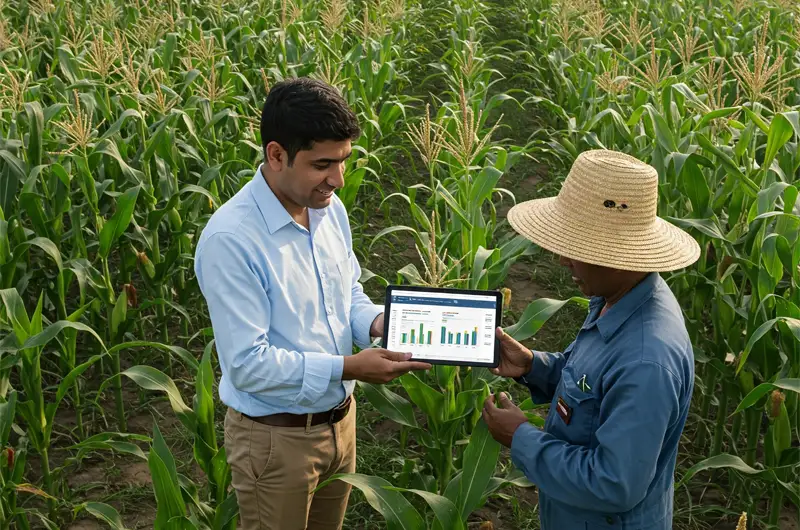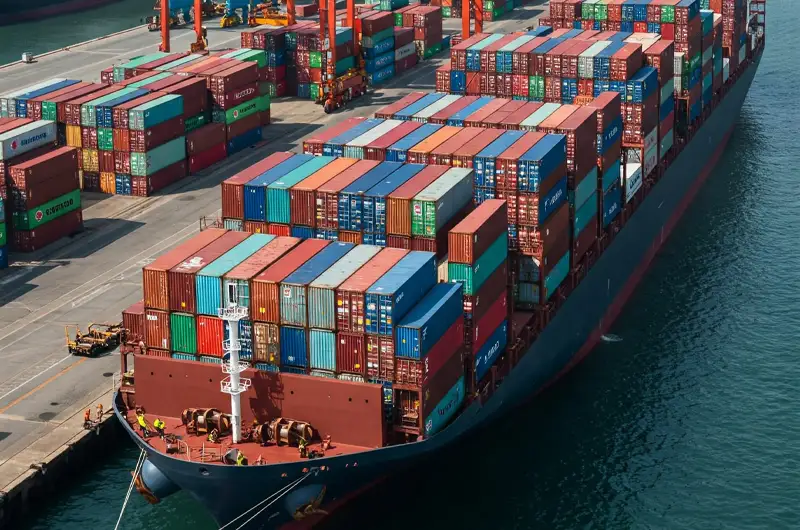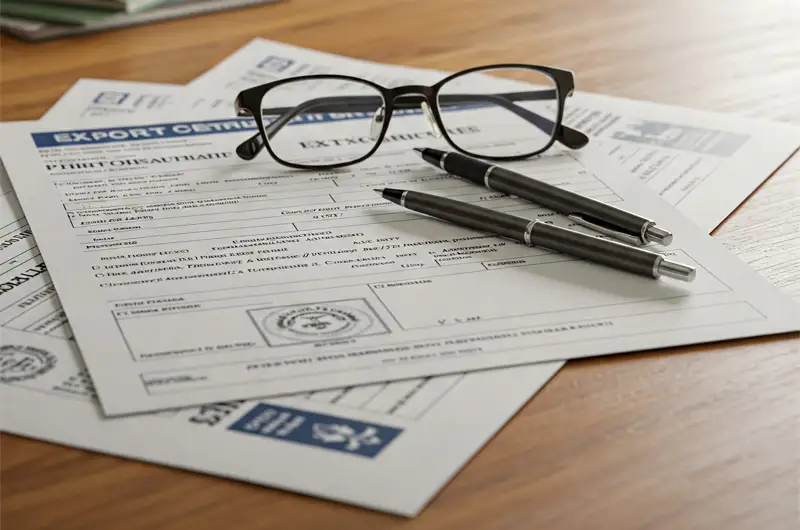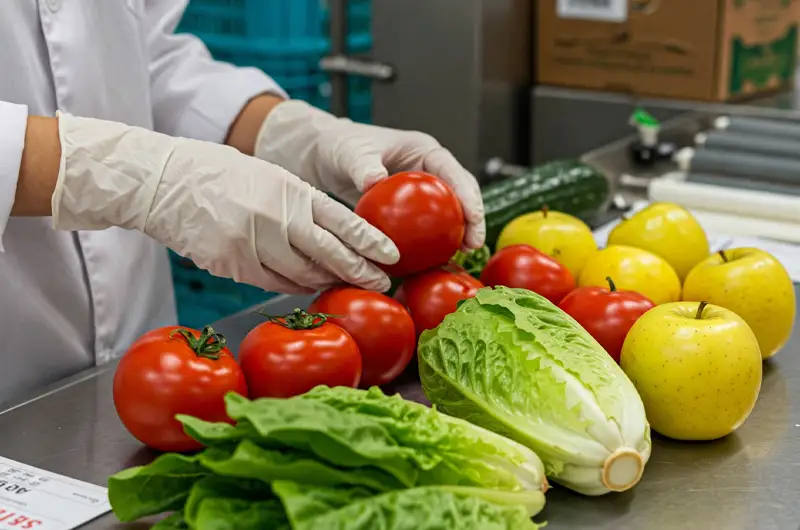Agricultural Export Standards Consultant: Navigating Global Trade
An Agricultural Export Standards Consultant is a specialized advisor who helps farmers, producers, and agribusinesses navigate the complex landscape of international regulations and standards required to sell food and agricultural products in foreign markets. Engaging their expertise is crucial for avoiding costly errors, ensuring compliance, and successfully accessing global consumers. They act as your guide through the maze of rules, ensuring your products meet the specific requirements of your target countries.
What Does an Agricultural Export Standards Consultant Do?

These consultants wear many hats, focusing on ensuring your products and processes align with intricate international requirements. Their core functions streamline your export journey:
Interpreting Complex Regulations
International trade involves a web of rules. Consultants decipher requirements related to food safety, plant and animal health (known as Sanitary and Phytosanitary or SPS measures), packaging, labeling, and quality grades specific to each destination market. They stay current on regulations enforced by bodies like the importing country’s agricultural ministry, as well as international guidelines (e.g., Codex Alimentarius).
Ensuring Compliance Across the Board
Compliance isn’t just about the final product; it spans the entire supply chain. An agricultural export compliance consultant helps implement necessary practices, from on-farm procedures (like Good Agricultural Practices – GAP) and processing controls (like Hazard Analysis and Critical Control Points – HACCP) to storage and transportation protocols. They ensure you meet requirements set by authorities such as the USDA’s Food Safety Inspection Service (FSIS) for meat and poultry or the Animal and Plant Health Inspection Service (APHIS) for plant health, as well as the Food and Drug Administration (FDA) for other food products, depending on the commodity and destination. [Source: USDA, FDA]
Facilitating Market Access
Different countries and buyers have unique standards. Consultants identify these specific requirements, whether they relate to organic certification, non-GMO status, specific quality grades, or even private buyer protocols. Their knowledge helps you target the right markets and meet their distinct entry criteria.

Managing Documentation & Certification
Exporting requires a significant paper trail. Consultants guide you through obtaining essential documents like phytosanitary certificates (verifying plant health, often overseen by USDA APHIS), certificates of origin, health certificates, and import permits. They can also assist in preparing for and achieving necessary certifications (e.g., GlobalG.A.P., organic).

Risk Management and Problem Solving
Mistakes in export compliance can lead to rejected shipments, fines, or bans. Consultants proactively identify potential risks in your process and help implement corrective actions. They troubleshoot issues that may arise during inspection or customs clearance.
Key Areas of Expertise for Agricultural Export Consultants
A proficient consultant possesses deep knowledge across several critical domains:
Understanding Food Safety Standards (SPS & HACCP)
This includes mastery of international food safety principles and specific regulations of target markets regarding pathogens, contaminants, and residues. They understand and help implement preventative systems like HACCP, crucial for meeting requirements enforced by agencies like the FDA and USDA FSIS. [Source: FDA, USDA FSIS]

Navigating Labeling and Packaging Rules
Each country has specific laws concerning language, nutritional information, allergen declarations, date marking, and origin labeling. Consultants ensure your packaging complies, preventing rejection at the border.
Mastering Quality and Grade Standards
Expertise in official grade standards (like those from USDA’s Agricultural Marketing Service – AMS) and buyer-specific quality requirements is vital for ensuring product acceptance and fetching the right price.
Knowledge of Organic and Sustainability Certifications
With growing demand for certified products, consultants advise on requirements for USDA Organic certification for export, international organic equivalency agreements, and various private sustainability standards (e.g., Fair Trade, Rainforest Alliance).
Expertise in Traceability Requirements
Many import markets increasingly require robust traceability systems to track products from the farm to the consumer. Consultants help implement systems that meet these demands, enhancing food safety and consumer trust.
Why Partner with an Agricultural Export Standards Consultant?
Investing in a consultant offers significant returns for agricultural exporters:
Avoid Costly Mistakes and Delays
Non-compliance leads to rejected shipments, demurrage charges, product loss, and potential fines. A consultant’s expertise minimizes these risks, saving you money and time.
Gain a Competitive Edge
Successfully navigating complex standards opens doors to premium markets that competitors might struggle to access. Compliance and certifications can become key selling points.
Build Trust with International Buyers
Demonstrating a commitment to meeting stringent standards builds confidence with importers and retailers, fostering stronger, long-term business relationships.
Focus on Your Core Business
Outsourcing the complexities of standards compliance allows you and your team to concentrate on what you do best: producing high-quality agricultural products.
Finding the Right Consultant for Your Needs
Choosing the right partner is key:
Assess Their Experience and Specialization
Look for consultants with proven experience in your specific commodity (e.g., fresh produce, meat, grains) and target export markets. Ask about their track record.
Check Credentials and References
Inquire about relevant certifications or affiliations (though formal licensing isn’t typically required for the consulting role itself). Always ask for and check client references.
Ensure Clear Communication
The consultant should be able to explain complex regulations clearly and provide actionable advice. Good communication is vital for a successful partnership.

Your Partner in Global Agriculture Trade
Exporting agricultural products offers immense growth opportunities, but success hinges on navigating a complex regulatory environment. An Agricultural Export Standards Consultant provides the specialized knowledge and practical guidance needed to meet international requirements, ensure compliance, and confidently expand your business into global markets. They are invaluable partners in turning export challenges into profitable opportunities.
Latest Posts:


